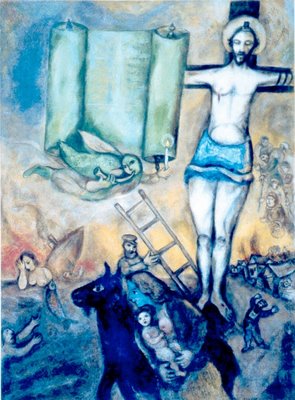
O give thanks to the Lord, for he is good, for his steadfast love endures for ever. O give thanks to the God of gods, for his steadfast love endures for ever. O give thanks to the Lord of lords, for his steadfast love endures for ever... who struck Egypt through their firstborn, for his steadfast love endures for ever; and brought Israel out from among them, for his steadfast love endures for ever; with a strong hand and an outstretched arm, for his steadfast love endures for ever; who divided the Red Sea in two, for his steadfast love endures for ever; and made Israel pass through the midst of it, for his steadfast love endures for ever; but overthrew Pharaoh and his army in the Red Sea, for his steadfast love endures for ever; who led his people through the wilderness, for his steadfast love endures for ever. (Psalm 136: 1-3, 10-16)
The Hebrew Bible is dominated by the Exodus story. It is only the second of at least thirty-nine chapters in the book, but the promise of a powerful and loving protector intervening directly to free and form a community of the blessed is a theme that the other chapters recall again and again.
The Tanakh - the Hebrew Bible - is ordered differently than the Christian Old Testament. The early Church fathers took the chapters and organized them in a manner to emphasize a new narrative climax in the life, crucifixion, and resurrection of Jesus.
In their original order the chapters of the Tanakh follow a very different plot line. The chapters proceed from early dramatic interventions by a divine protector and punisher to later chapters that highlight God as the source of wisdom and inspiration to guide human choice. Some commentators suggest it is a story of a father allowing his children more and more freedom and responsibility as they mature.
We may sometimes envy the more secure dependence of childhood. But we are called to the freedom and responsibility of mature living.
Above is Yellow Crucifixion by Marc Chagall.

0 Comments:
Post a Comment
<< Home